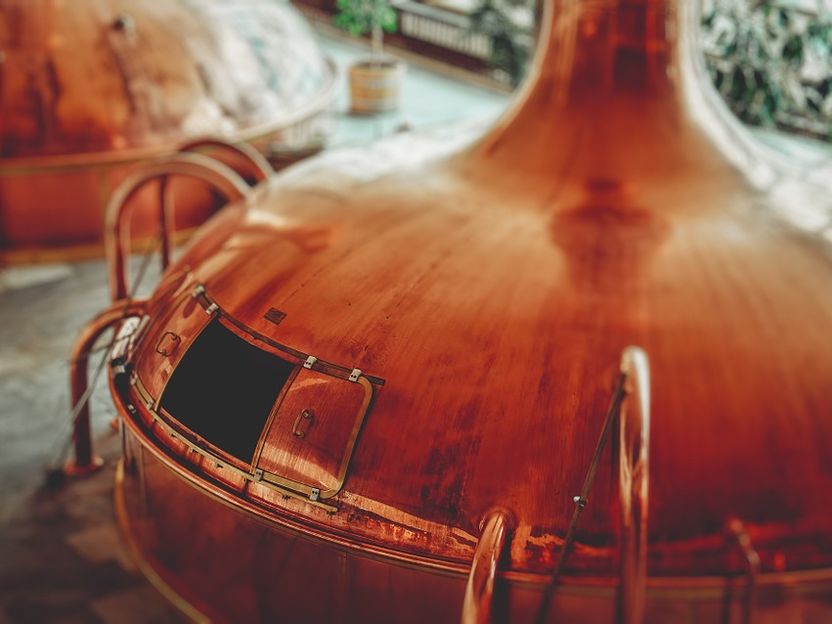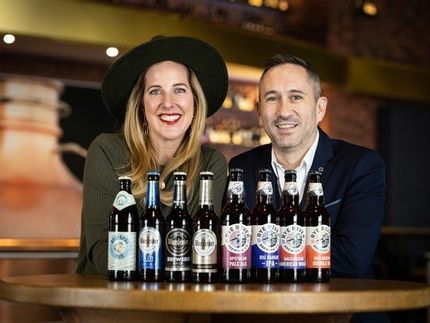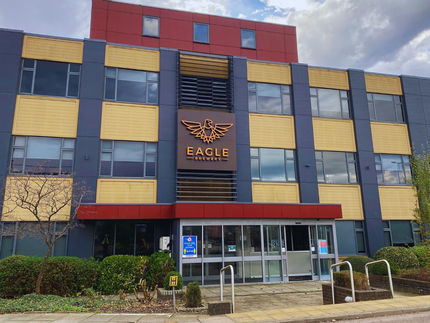Beer and weed? Breweries smell the big business with cannabis
breweries and spirits companies in the USA are discovering a new drug for themselves in addition to alcohol. cannabis is generally not regarded as a stimulant, but it is precisely this intoxicant that should get the weakening industry back on its feet. While the demand for many large beers is dwindling, the business with legal marijuana is booming there. Marijuana is already permitted in several US states - including the billion-dollar California market. In October another Eldorado is to open with Canada.

Free-Photos/ Pixabay
"Over the past year we have come to better understand the cannabis market and its enormous potential," says CEO Rob Sands of the Spiritousen giant Constellation Brands. The US group, which sells beer brands such as Corona and Modelo, acquired a stake in Canadian marijuana producer Canopy Growth in October 2017. Constellation was thus the forerunner in the industry - and has shown a good nose.
In mid-August, the Americans made strong gains and announced that they would invest a further four billion dollars in Canopy Growth. This is intended to increase the share of Canadians to 38 percent. "With this investment we choose Canopy Growth as our exclusive global cannabis partner," announced Constellation CEO Sands. His company, whose portfolio also includes various types of wine and high-percentage calibres such as Svedka Vodka or High West Whiskey, is right on trend with this investment.
Shortly before Constellation's mega-investment in Canopy, the world's fifth largest brewery group Molson Coors had already announced its intention to become a major player in the cannabis business. The Denver-based company has its sights set on the upcoming legalization in Canada and is starting a joint venture with what it claims to be Canada's leading marijuana producer Hydropothecary with its subsidiary there.
"We remain essentially a beer company, but are pleased to be starting a separate new project with a reliable partner," said Frederic Landtmeters, CEO of Molson Coors Canada. According to US media, Diageo <GB0002374006>, the company behind world brands such as Johnnie Walker and Smirnoff, is also looking for Canadian cannabis partners.
But what is the industry up to? Is it all about mixing beer or liquor with cannabis?
In fact, the focus is on non-alcoholic cannabis beverages. Coors and Hydropothecary intend to develop such drinks specifically for the Canadian market, where marijuana is to be approved as a stimulant in the middle of next month and potable cannabis products should be legalized from 2019. Rival Heineken <NL0000009165> launched its US brand Lagunitas, a sparkling water containing cannabis, in California in July. In Nevada, however, a cannabis beer is due to come onto the market soon - but without alcohol.
There are good reasons why the industry is looking for alternatives. Because beer consumption in North America leaves much to be desired from the manufacturers' point of view. Especially the younger clientele is no longer so taken with Bud, Miller, Coors and Co. - if alcohol, then wine or spirits are more in demand here. The only niche in the US beer market that has grown considerably in recent years comprises the "craft beer" of smaller microbreweries, which have thus already become coveted takeover targets for the industrial giants.
Experts see the booming cannabis business as a great opportunity for beer and spirits producers. "The cannabis revolution is in full swing, while the alcohol industry has so far been largely off the beaten track," says Spiros Malandrakis of market researcher Euromonitor. Now it is up to the breweries to seize the opportunity: "The marijuana industry could drive the next growth cycle or stall an industry that has already fallen into a defensive position. A reorientation has begun which could provide answers to the existential questions of industry.
Euromonitor estimates the annual volume of legal marijuana sales in Canada at $7.5 billion. "The warm-up phase is over - now it really starts", Canopy boss Bruce Linton is pleased. In the USA, where cannabis is now permitted as a stimulant or drug in 30 states, the market volume should reach 10 to 11 billion dollars this year. Arcview estimates that the market will grow to $24 billion by 2021 and that the marijuana industry will provide the US with 400,000 jobs and $4 billion in tax revenues./hbr/DP/zb (dpa)






























































